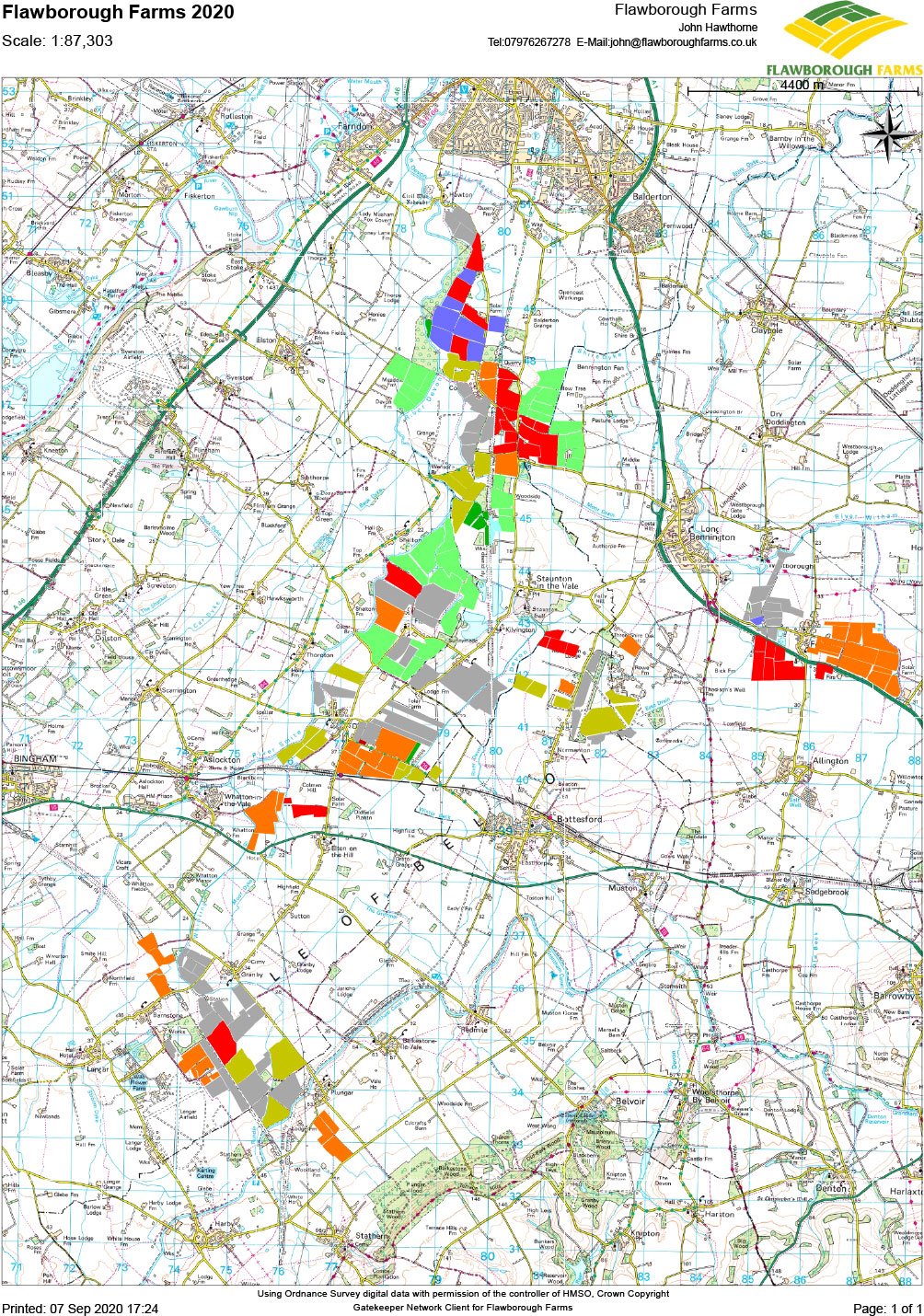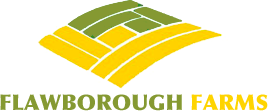About Us & The Farm
Based in the Nottinghamshire hamlet of Flawborough on the northern tip of the vale of Belvoir. The majority of our soils are heavy slow draining clays, Flawborough is predominantly Fladbury, Evesham and Worcester soil classification. Our arable area has gradually increased through contract farming arrangements (CFA’s) with local likeminded landowners on similar soil types. At the main yard we have the facilities to store 7000 tonnes with a 50 tonne an hour grain dryer, 400 tonnes of automated wet storage, colour sorter and cleaner, automated weighbridge and grain lab.
Our key objectives
- Our whole ethos’s is to look after and improve these assets we are fortunate to own, or farm in conjunction with our landowners. At the same time building an agricultural business that is profitable as well as sustainable.
- Soil health is at the heart of everything we do. The more we invest in the soils, the more output the soil gives. Another important factor is to farm with the environment not against it. A successful farm delivers economic output at the same time as encouraging the local habits, wildlife, and fauna to thrive.
- We have a long-term view and hope to be farming blocks of land for decades if not generations, building a strong relationship between ourselves and the landowners.
- Data and record keeping are at the heart of everything we do. We have always used Gatekeeper for crop recording, operations, variable costs, stocks and budgeting.
What is a contract farming arrangement
Contract farming is a joint venture agreement between a land owner and Flawborough Farms. The landowner keeps their own identity supplying the land and variable costs, whilst Flawborough Farms supply, all the necessary machinery, labour and management expertise, to establish, manage and harvest the crops. There are quarterly minuted meetings (more if required) to discuss cropping, gross margin etc.
As CFA's are a core part of our business. We have a wealth of experience in the operation and management of them. Our first true CFA started back in 1997, with us still farming it today. There is a large amount of trust involved between the contractor and the landowner. With this in mind, we have developed some key points to a successful CFA.
- Communication – regular dialogue with the landowner and supporting agents.
- “Cloud” based filing and document sharing. Allowing all parties to see all invoices deliveries and sales for example.
- New for 2020 – a login allowing the viewing of current progress through the farm with application, timings, and yield maps. To aid transparency.
Agronomics and crop husbandry
Historically yield has been king, with many of the answers being found in an agrochemical can or mineral fertiliser bag. Times have now changed with extraordinarily little new chemistry available, along with the existing chemical portfolio being reduced dramatically every year. The use of cultural controls, soil and the environment health and the best possible management now being at the forefront of our minds
- The use of non-commercial advice
- Tom is a fully BASIS trained.
- Advice and a member of Green Crop Information (formally CMI)
- Member of NIAB & Biodiversity, Agriculture, soil, and Environment (BASE UK)
- The full use of intergraded farm management (IFM) and pest management (IPM) threshold
- On farm trials, large varieties trial plus multiple manufacturers trials. Some open to the industry
- The use of precision farming to help monitor crop health.
- High attention to detail
What we grow
- Winter Oil Seed Rape
- Winter & spring wheat
- Winter & spring barley
- Winter & spring beans
- Spring oats
- Forage maize
Farm Map

